
We are curious
On February 29, Demmi Ramos ’25 gathered on the university intramural field with the rest of the Balloon, Engineering and Rocketry (BEAR) team for the first high-altitude balloon launch of the year – and Ramos’ first launch as the team’s balloon lead.

“I spent my first two years on the team observing and learning a lot. This year is much more hands-on,” sad Ramos. “This first launch is relatively small, but eventually we’re going to put cameras and telemetry equipment to record temperatures and weather data because on April 8 we’ll be going to Arkansas to launch a balloon in the path of the total solar eclipse as part of the National Eclipse Ballooning Project [sponsored by NASA and the National Science Foundation].”
Ramos, a mathematics major, also serves as the team’s rocket payload lead, overseeing the design and preparation of the experiment the team will launch in its rocket in June at the 2024 Spaceport America Cup in New Mexico – one of the largest intercollegiate rocket competitions in the world.
Working with the BEAR team has broadened Ramos’ knowledge about protective coatings for circuits and thermoelectric cooling systems, but it involves surprisingly little math.
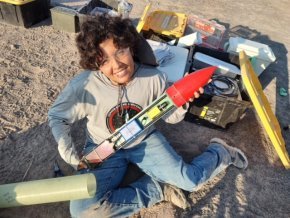
“When I joined the team, I expected to gain new knowledge and skills,” Ramos explained. “We use a lot of simulations that do the calculations automatically. It’s double-edged because I do love doing calculations, but automating those parts of the process frees us up to think further about the mathematical concepts.”
As part of the BEAR team Ramos is gaining new skills. But the mathematics department is where Ramos feels most at home at LR, exploring deeper mathematical concepts and building research experiences and credentials.
“I’ve always loved math. In my first year, I was undecided about my major, but taking classes with the math professors and getting to know them I got a sense of family from the department, like I really belonged there,” Ramos shared.
Through encouragement by faculty within the department, Ramos is working with Timothy Goldberg, Ph.D., on his research spotting coordinates and patterns generated in the card game EvenQuads.
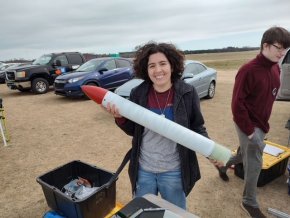
“The object of the game is to create sets of four cards – which we treated like coordinates. We worked on building layouts with certain properties, proving how the patterns are formed, how they hold true and the circumstances that generate those patterns,” Ramos explained. “This kind of research takes a lot of attention to details, and sometimes the layouts didn’t do what I wanted but created new paths to explore. Those explorations and opportunities are the core of mathematical research.”
Building on that research experience, Ramos has joined math faculty members at multiple conferences nationwide, presenting about trends in mathematical research. In the summer of 2023, Ramos also conducted research with the Mathematics Climate Research Network, located at Wake Forest University and funded by the American Institute of Mathematics.
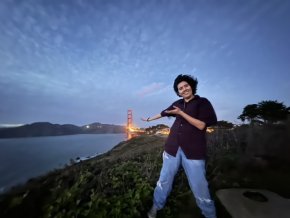
“We were using computations to model how the Earth’s oceans could go from being completely liquid to completely ice,” Ramos explained. “It helped me realize my interest in climate research, which is also a focal point in the REUs [Research Experiences for Undergraduates] I applied for this summer. I’ve accepted an offer to do an REU at the Mote Marine Laboratory in Sarasota, Florida. I will be interning with the Ocean Technology Program by engineering ocean instrumentation.”
Ramos is considering graduate study in climate science or ecology, which fits a long-standing connection with nature, evident in their active participation in Outdoor Adventure Club and leadership as president of SEEDS (Ecological Society of America).
“In November 2022, I went to the University of Arizona and met with other students from the Ecological Society of America to study social ecological resilience,” Ramos recalled. “We went to the desert laboratory on Tumamoc Hill to measure Saguaro cacti and learn about their resilient nature and growth patterns. We drove up Mount Lemmon to see vegetation differences and met with data scientists and other people in the ecological professions to learn about their work.”
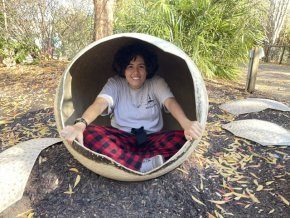
SEEDS is only one of the campus organizations where Ramos has assumed a leadership role. They also serve as president for the LR chapter of Chi Beta Phi, the math and science honor society, as well as president of the Campus Activities Board (CAB). Ramos also serves as vice president of the First-Generation Students Association and as vice president of the Honors Academy.
“Of course, so many activities make a competitive resume, but that’s for them. For me, myself, I’m learning a lot of things that will allow me to adapt to changes in work and in life,” said Ramos. “Plus, it’s fun being able to engage in these experiences that I can look back on – that’s the point of college.”
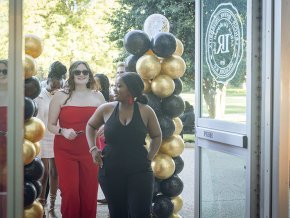
The revamped 2024 Student Life Awards gave students "A Night to Remember" with recognition and celebration of the joys of being a Bear.
View More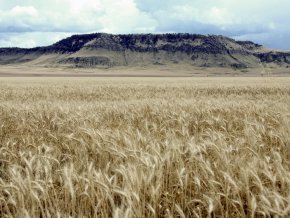
Susan McArver, Ph.D., took a deep dive into the role of the church behind the history of colonization and domination over Indigenous peoples in the Americas during her fall Explore Course, “The Land and its Inhabitants.”
View More